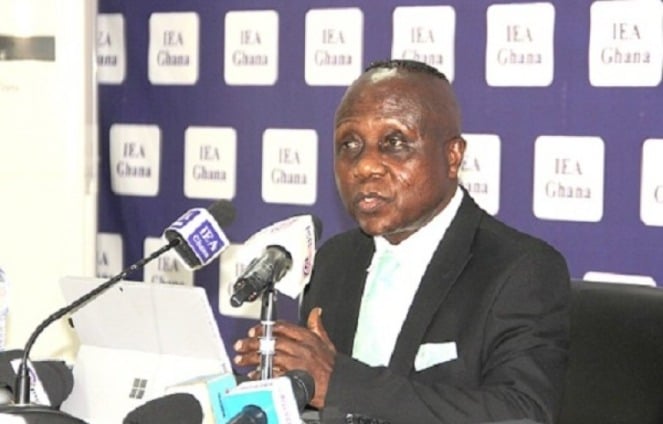Dr. John Kwakye, Director of Research at the Institute of Economic Affairs (IEA), has strongly advocated for the incoming John Dramani Mahama administration to prioritize the restoration of majority Ghanaian ownership within the banking sector. This call to action stems from concerns over the perceived “de-indigenization” of the sector resulting from the 2017-2019 financial cleanup exercise undertaken by the outgoing Nana Addo Dankwa Akufo-Addo government. Dr. Kwakye argues that a predominantly foreign-owned banking sector poses a significant risk to Ghana’s economic stability and growth, emphasizing the crucial role of local ownership in fostering a more resilient and responsive financial system. He proposes engaging the International Monetary Fund (IMF) to collaboratively develop strategies for achieving this objective, suggesting that new management and governance structures be implemented as part of the restoration process.
The financial cleanup exercise, while intended to strengthen the banking sector by addressing weaknesses and vulnerabilities, resulted in the revocation of licenses from several indigenous banks. This consolidation, according to Dr. Kwakye, led to a shift in ownership dynamics, with foreign entities gaining a larger share of the market. He believes that this skewed ownership structure undermines national economic interests, potentially limiting access to credit for local businesses, hindering investment in key sectors, and reducing the overall responsiveness of the banking system to domestic economic needs. Therefore, reversing this trend and restoring a predominantly Ghanaian-owned banking landscape is paramount to ensuring sustainable economic growth and stability.
Dr. Kwakye’s recommendation to involve the IMF in this process highlights the complexity of the issue and the need for a comprehensive and carefully managed approach. Negotiating with the IMF could provide access to technical expertise, financial support, and international credibility, all of which would be crucial for implementing reforms and attracting new local investment into the banking sector. The proposed new management and governance structures would aim to address the underlying weaknesses that contributed to the previous instability within the sector, ensuring that a restored Ghanaian-owned banking system operates with greater transparency, accountability, and resilience.
The context for Dr. Kwakye’s appeal is further underscored by the pronouncements of Dr. Ernest Addison, Governor of the Bank of Ghana, who has categorically stated that the revoked banking licenses will not be reinstated under his tenure. This stance has fueled the ongoing debate about the future of local ownership within the banking industry, highlighting the divergent perspectives on the optimal structure and regulation of the sector. Dr. Kwakye’s call for IMF involvement seeks to navigate these differing viewpoints and find a solution that balances the need for a robust and stable banking system with the imperative of maintaining significant local ownership.
The incoming Mahama administration faces a complex challenge in balancing the need for a stable financial sector with the desire to increase local ownership. Achieving this will require a multifaceted approach that involves not just negotiations with the IMF but also internal reforms and policy adjustments. Attracting local investment back into the banking sector will require instilling confidence in the regulatory framework and demonstrating a commitment to transparency and good governance. The government will need to create a conducive environment for local investors by addressing any perceived risks and uncertainties, fostering a stable macroeconomic environment, and providing incentives for local participation in the banking sector.
The restoration of majority Ghanaian ownership in the banking sector is presented as a crucial step towards achieving sustainable economic growth and stability. Dr. Kwakye’s argument centers on the idea that a locally owned banking sector is better positioned to understand and respond to the specific needs of the domestic economy. This resonates with the broader debate on national economic sovereignty and the role of domestic institutions in driving development. The incoming government’s response to this call for action will significantly shape the future landscape of Ghana’s financial sector and its contribution to the overall economic well-being of the nation. The engagement with the IMF, as proposed by Dr. Kwakye, offers a potential pathway towards achieving this objective while ensuring the stability and resilience of the banking system.














